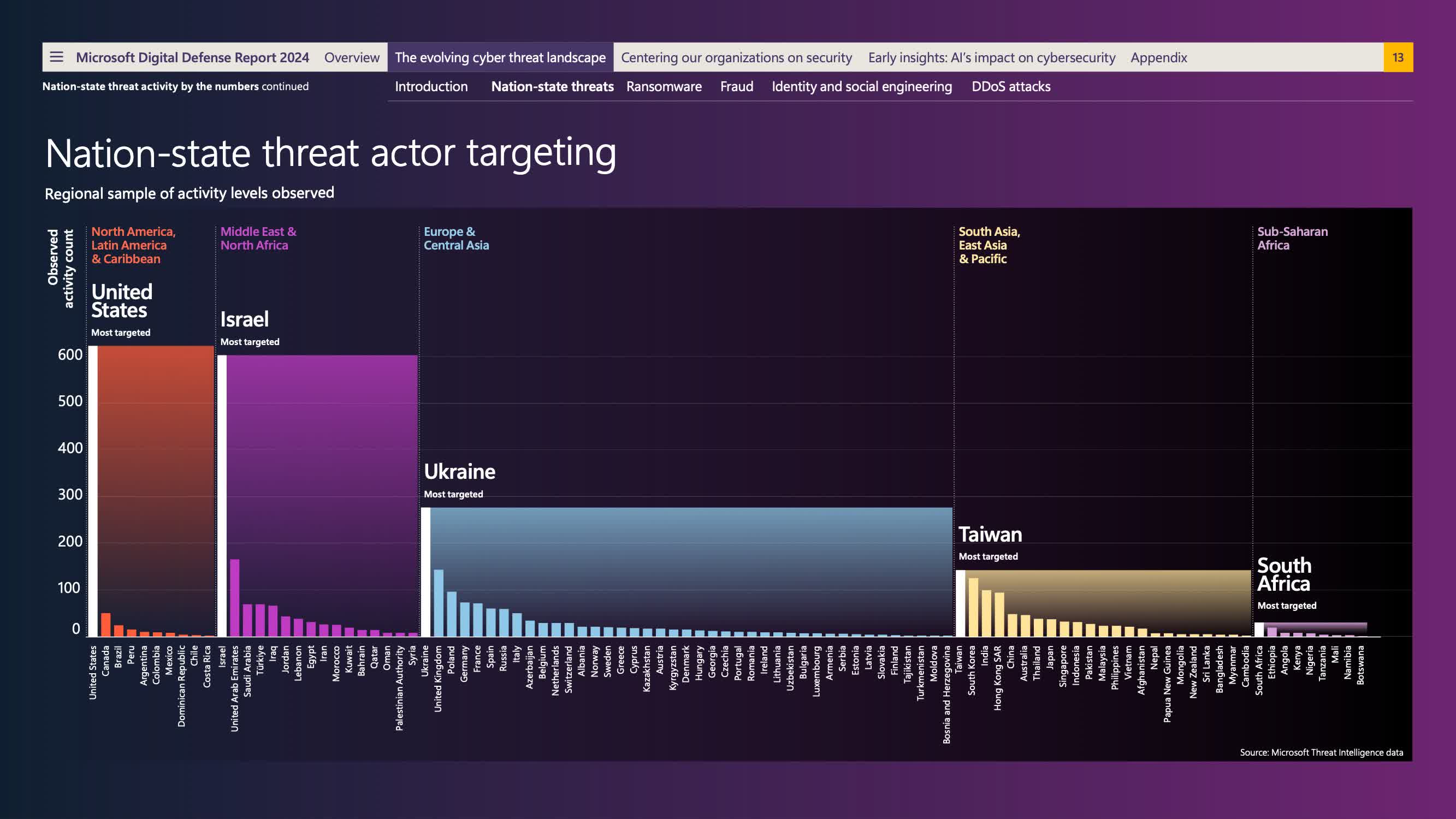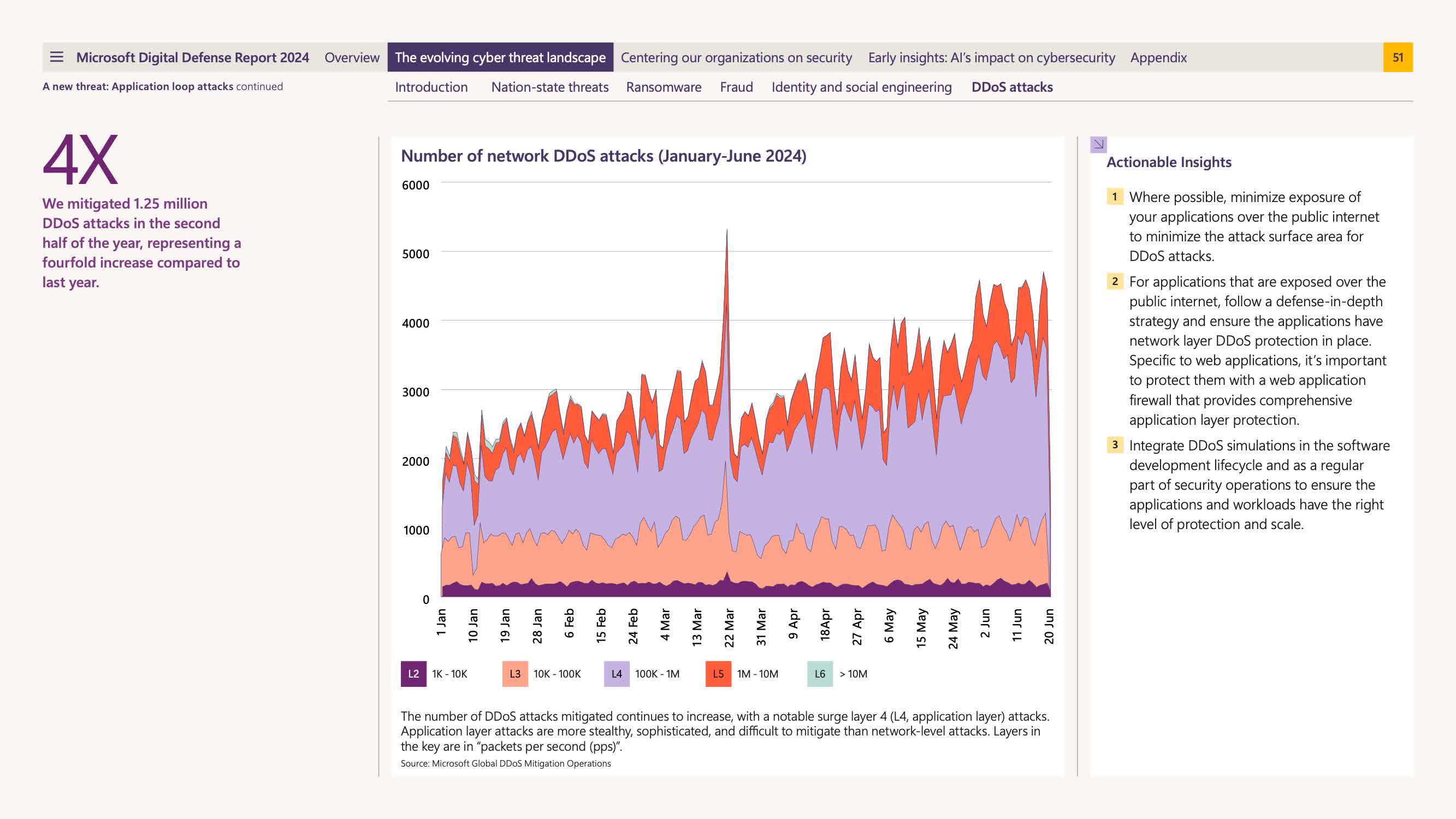Bottom line: A new security report by Microsoft paints a picture of a cyberworld where sophisticated technologies, state-sponsored activities, and criminal enterprises are converging to present unprecedented challenges. A collective effort and vigilance are more essential than ever amid this evolving landscape.
Over 600 million cybercriminal and nation-state attacks occur daily, targeting individuals, businesses, and governments alike, according to Microsoft's newly released Digital Defense Report for 2024.
A major theme running through the 110-page report is the growing sophistication of cyber attackers. Both cybercriminals and nation-state actors use advanced technologies, including generative AI, to increase the effectiveness of their malicious activities. This technological leap has made attacks more complex and challenging to defend against.
One of the most alarming findings is the increasing collaboration between cybercrime gangs and nation-state groups. These unlikely alliances share tools and techniques, blurring the lines between criminal enterprises and state-sponsored cyber operations. This cooperation has also led to more potent and diverse attack strategies.
Nation-state actors, in particular, have expanded their cyber operations. Their motivations range from financial gain to intelligence gathering, explicitly focusing on military targets. The report notes that these actors frequently employ info stealers and command-and-control frameworks in their operations.
For example, Russian threat actors have reportedly outsourced some of their cyber-espionage operations to criminal groups, particularly those targeting Ukraine. In one instance, a suspected cybercrime group compromised at least 50 Ukrainian military devices using commodity malware.
Iranian actors have taken a different approach, combining ransomware attacks with influence operations. In a notable case, they marketed stolen data from an Israeli dating website, offering to remove individual profiles for a fee.
North Korea has also entered the ransomware arena. The report identifies a new North Korean actor that developed a custom ransomware variant called FakePenny. This malware was deployed against aerospace and defense organizations, showcasing intelligence gathering and financial motivations.
Chinese cyber activities remain consistent with previous years, focusing primarily on Taiwan and Southeast Asian countries. The intensity and geographic targeting of these operations have not significantly changed.
As the US presidential election approaches, concerns about foreign interference have resurfaced. However, the report suggests that public discourse on this issue is less prominent than in the 2020 election cycle. Nevertheless, Microsoft warns that Russia, Iran, and China are actively exploiting ongoing geopolitical issues to sow discord and undermine confidence in democratic processes.
Besides the United States and the United Kingdom, nations experiencing active military conflicts or regional tensions are primary targets. These include Israel, Ukraine, the United Arab Emirates, and Taiwan.
Microsoft emphasizes the need for a collaborative approach to address these escalating threats. Redmond is calling for increased cooperation between the public and private sectors – a strategy that needs to include not only technological advancements but also policy changes and improved cybersecurity practices across all levels of society.
"This means implementing and enforcing policies and tooling, such as enhanced multifactor authentication and attack surface reduction rules," according to the report. "At the same time, as the threat landscape evolves, securing identities, hardening endpoints, and protecting the cloud infrastructure has become more important than ever."


